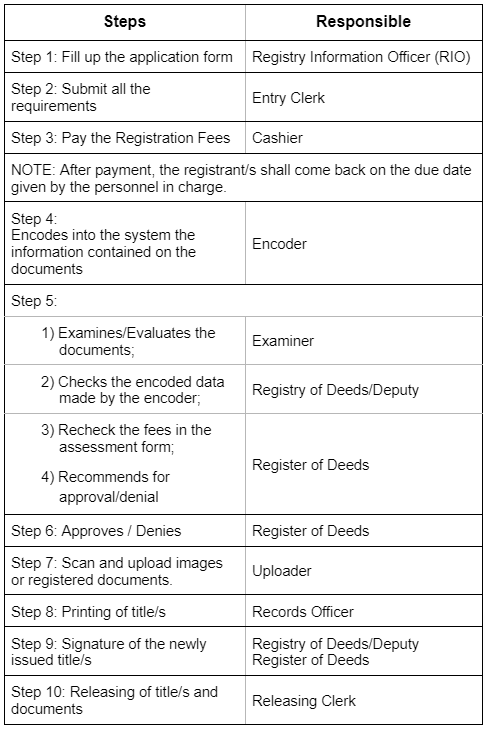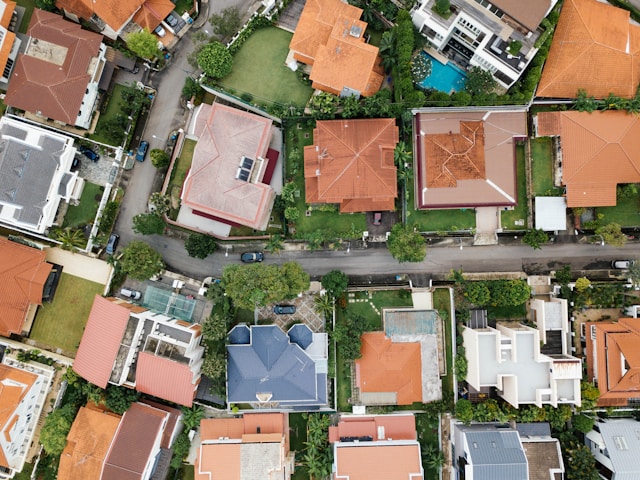Buying property in the Philippines can be a complex process, especially for those unfamiliar with the local real estate legal requirements and procedures. With its stunning beaches, tropical climate, and warm hospitality, the Philippines has become an attractive destination for property buyers around the world. Whether you’re a local resident or a foreign investor, understanding the nuances of purchasing real estate in this archipelagic nation is crucial.
This comprehensive guide aims to demystify the buying process, providing you with essential information on the legal requirements, particularly with transacting at the Register of Deeds. You will also learn in this article the invaluable role of real estate agents, practical do’s and don’ts, and relevant tips for buyers.
Table of Contents
1. Understanding the Requirements When Buying Property
Buying property in the Philippines comes with a set of requirements that potential buyers must fulfill. For starters, foreigners are subject to certain restrictions. While they can legally own condominium units, land ownership is generally reserved for Filipino citizens. However, there are ways around this, such as long-term leases or purchasing through a Filipino spouse or a corporation with 60% Filipino ownership.
For both locals and foreigners, the primary documents needed include a Letter of Intent, Deed of Sale, Certificate of Title, Tax Declaration, Realty Tax Clearance, Homeowners Association (HOA) Membership, and if applicable, Mortgage Documents. Ensuring these documents are in order is the first step towards a successful property purchase.
The timeline for purchasing property can vary, but it generally takes around a month to complete all necessary steps. This includes property research, securing financing, negotiating terms, and transferring titles. As for the fees, buyers should be prepared for transfer taxes, registration fees, notary fees, and other miscellaneous costs associated with the transfer of ownership.
2. Transacting at the Register of Deeds
In the Philippines, the Land Registration Authority (LRA) is the government agency responsible for the issuance of property titles and documents. Depending on the property’s location, you may visit their official website for a comprehensive list of all the Register of Deeds (ROD) offices in the country. You need to consider the office hours so you can plan and schedule your transactions accordingly. Usually, the ROD offices are open from Monday to Friday, 8:00 AM to 5:00 PM, but verify with the branch first for the correct office hours.
Below are the requirements and process flow for transactions of sale according to the Register of Deeds.
Essential Documents and Requirements
The first step in buying property is preparing all necessary legal documents. These include the property title, tax declarations, and clearance. Ensuring that these documents are accurate and up-to-date is paramount. For foreigners, additional requirements may apply, such as coordinating with the condominium corporation if buying a condominium unit.
Requirements
Prepare the following documents and double-check for accuracy.
1.) Original Deed of Sale with stamp from BIR;
2.) Original Owner’s Duplicate Copy of Title;
3.) Certificate Authorizing Registration (CAR) from BIR;
4.) Transfer Tax (Provincial/City or Municipal Treasurer’s office where property is located);
5.) Real Property Tax Clearance (Provincial/City or Municipal Treasurer’s office where property is located);
6.) Certified copy of Tax Declaration, and
7.) SPA if necessary; Affidavit if necessary
8.) Secretary’s Certificate and Articles of Incorporation in case of Corporation;
9.) Presenter’s ID (photocopy)
Fees
1.) Registration Fee – Based on the prescribed schedule of fees corresponding to the Consideration Value or Assessed Value, whichever is higher
2.) IT Fee – Php 386.32 per document submitted
Processing Time and Process Flow
1 PHILARIS Title – 20 Working Days
PHILARIS refers to the Philippine Land Registration and Information System.

3. The Importance of a Real Estate Agent

A reputable real estate agent can be your greatest ally in the property-buying process. They offer expert guidance, comprehensive market knowledge, personalized property searches, professional negotiation skills, and assistance with stress-free paperwork. Especially for foreigners, an agent’s local expertise is invaluable in navigating the complex property landscape of the Philippines.
- Market Knowledge: Real estate agents have extensive knowledge of the property market, which includes current pricing trends, neighborhood conditions, and future market projections. This information is crucial for making an informed decision when buying property.
- Negotiation Skills: Agents are skilled negotiators who can handle the back-and-forth of real estate transactions. They work to get you the best deal possible, often saving you more than their commission costs in the process.
- Professional Network: Agents have a vast network of contacts, including sellers, buyers, and other agents. This network can provide you with access to properties that may not be publicly listed yet, giving you an edge in finding your ideal home.
- Paperwork and Legalities: The process of buying property involves a significant amount of paperwork. Real estate agents are familiar with all the necessary documents and can help ensure that everything is completed correctly, which can help avoid legal issues down the line.
- Time-Saving: Searching for the right property can be time-consuming. An agent can help streamline the process by shortlisting properties that meet your criteria, scheduling viewings, and handling the bulk of the communication with sellers.
By leveraging the expertise of a real estate agent, you can navigate the complex process of buying property with greater confidence and ease.
4. Buying Property Do’s and Don’ts

When buying property, there are several guidelines to keep in mind:
- Do conduct due diligence on the property’s legal status and history.
- Do secure financing pre-approval if necessary.
- Do visit the property in person for inspection.
- Don’t rush into a purchase without understanding all the legal and financial implications.
- Don’t skip on getting a professional valuation of the property.
- Don’t underestimate the importance of a good real estate agent.
5. Relevant Tips When Buying Property

To ensure a smooth buying experience, consider the following tips:
- Budget Wisely: Account for all potential costs, not just the purchase price.
- Understand the Market: Stay informed about market trends and property values.
- Legal Representation: Engage a lawyer to review contracts and legal documents.
- Negotiate: Be prepared to negotiate terms to secure the best deal when buying property.
- Plan for the Future: Consider the property’s potential for appreciation and your long-term plans.
Conclusion
Buying property in the Philippines can be a rewarding investment or a dream come true provided you approach it with the right knowledge and support. By adhering to the guidelines and leveraging the expertise of professionals, you can purchase with confidence and make informed decisions that align with your goals.
For more detailed information and assistance, consider reaching out to our real estate professionals and legal advisors here at Jobanz Realty. Let our expertise provide you the peace of mind and clarity throughout the buying process.
Remember, the key to a successful property acquisition lies in preparation, patience, and due diligence. Happy house hunting!







